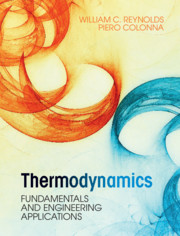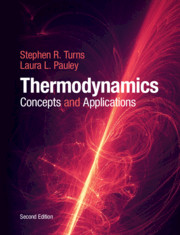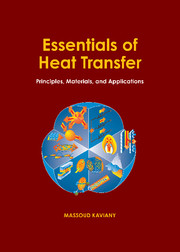Thermodynamics
This concise text provides an essential treatment of thermodynamics and a discussion of the basic principles built on an intuitive description of the microscopic behavior of matter. Aimed at a range of courses in mechanical and aerospace engineering, the presentation explains the foundations valid at the macroscopic level in relation to what happens at the microscopic level, relying on intuitive and visual explanations which are presented with engaging cases. With ad hoc, real-word examples related also to current and future renewable energy conversion technologies and two well-known programs used for thermodynamic calculations, FluidProp and StanJan, this text provides students with a rich and engaging learning experience.
- Develops the subject starting from an essential treatment, building on fundamental principles presented with an intuitive description of the microscopic behaviour of matter
- Provides fewer but more carefully conceived examples which enable students to fully understand the fundamental concepts of thermodynamics and to successfully apply them to all kinds of energy engineering problems
- Provides ad hoc, real-world examples related to current and future renewable energy conversion technologies to engage students in the global effort to solve the energy issue
- Accompanied by the academic version of FluidProp (fluid thermodynamic properties) and StanJan (chemical equilibria) - two well-known programs largely developed by the authors, enabling students to solve some of the more complex exercises and to obtain colorful visual information, such as many of the charts in the book
Reviews & endorsements
'This is a comprehensive and clearly written text that is organized in such a way that it may be used in both undergraduate and graduate courses in engineering thermodynamics.' Craig T. Bowman, Stanford University, California
'This book takes you on a journey through the fundamentals of thermodynamics, featuring scientific formality and comprehensive explanations of every concept, all focused on an engineering approach. A basic text for any course in applied thermodynamics and related areas, and for professionals in the need to revisit the fundamentals.' David Sánchez, Universidad de Sevilla
'Building on Bill Reynolds' classic book, Engineering Thermodynamics, this textbook offers a unique approach to teaching thermodynamics based on the understanding of simple physical principles. It will be of great benefit to future engineers tackling tough problems in energy.' Tim Lieuwen, Georgia Institute of Technology
'An excellent textbook for undergraduate and graduate students, and good reference for practicing mechanical engineers. The book's strength is in its simplification of the science of thermodynamics and the listing of its practical applications.' Hany Moustapha, Université du Québec
'A textbook that could be entitled 'Lean Thermodynamics' because it explains the core of this science by employing an effective and essential language and providing the fundamental concepts as they are needed. It focuses on topics and applications that are indispensable in facing today's challenges in energy, mechanical and aerospace engineering.' Gianluca Valenti, Politecnico di Milano
'This book is a must-have for students, academics and engineers working with thermodynamics. The authors present the foundations of thermodynamics by linking the beautiful formality of primary laws to a sharp description of the underlying microscopic world. Thermodynamics professionals and enthusiasts will keep this book within reach as an insightful reference.' Alberto Guardone, Politecnico di Milano
'The authors have taken care in clearly articulating the requisite topics for engineering students in a very engaging manner. The book will be an important resource for students in the classroom as well as into the future as they become practicing engineers.' Karen A. Thole, Pennsylvania State University
'The authors of this superb text have set out to present 'the very few concepts of classical thermodynamics, in a much more essential treatment'. Not overburdened with the inclusion of numerous repetitive examples, this book presents the basic concepts of energy and entropy in a simple equation form. The text is eminently suited for engineering undergraduate and first-year graduate level courses.' Lee S. Langston, University of Connecticut
'This comprehensive textbook of thermodynamics is strongly backed by plentiful educational experiences of the authors. It realizes that the fundamental concepts naturally connect to the practical consideration and understanding of real thermal systems, including modern engineering applications.' Toshinori Watanabe, University of Tokyo
'This textbook aligns well with the current needs of undergraduate students, who need to grasp fundamental concepts and make connections between interdisciplinary subjects to find innovative solutions.' Esra Sorguven, The Aeronautical Journal
Product details
September 2018Hardback
9780521862738
420 pages
255 × 198 × 27 mm
1.28kg
100 b/w illus. 220 colour illus. 23 tables
Available
Table of Contents
- 1. Introduction
- 2. Energy
- 3. Properties and states
- 4. Control volume energy analysis
- 5. Entropy and the second law
- 6. Thermodynamics of state
- 7. Energy conversion systems
- 8. Thermodynamic properties of multicomponent fluids
- 9. Exergy analysis
- 10. Thermodynamics of reacting mixtures
- Appendices: A. Thermodynamic properties of fluids
- B. Mathematical relations between partial derivatives
- C. Numerical schemes for saturation point and flash calculations
- D. Chemical equilibrium
- Index
- Notation.




